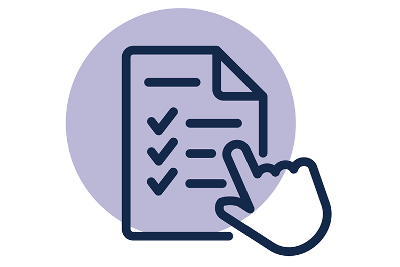Expressions of Interest - Partnership for Inclusion of Neurodiversity in Schools (PINS) Programme 2025

We invite Norfolk primary schools to complete the expression of interest (EOI) for participation in the PINS Programme - The Partnership for Inclusion of Neurodiversity in Schools. PINS is now in its second year, following its successful implementation in west Norfolk primaries in 2024/25.
The PINS programme for 2025 will see partners NHS Norfolk and Waveney Integrated Care Board (ICB), Norfolk County Council, Family Voice Norfolk, Family Action Norfolk and Norfolk SENDIASS come together to deliver the programme and support participating schools with strengthening and promoting neuro-inclusive practices.
About the Programme
PINS is a capacity-building initiative that will support selected schools to:
- Promote inclusive school cultures that embrace neurodiversity.
- Improve outcomes for neurodivergent students through practical and systemic adjustments.
- Strengthen collaboration between educators, families, and allied professionals.
- Trial and evaluate inclusive practices with the potential for broader implementation.
The programme will run from June 2025 to 31 March 2026, with structured support, ongoing collaboration, and reflective evaluation embedded throughout.
The PINS programme is funded by the shared outcomes fund and delivered between the Department for Education (DfE), NHS England (NHSE) and the Department for Health and Social Care (DHSC), with the aim of bringing health and education specialists and expert parent carers into mainstream primary settings to:
- Inform the future commissioning of services
- Help shape whole school SEND provision
- Provide early interventions at school level
- Improve confidence in school staff to support neurodivergent children and young people
- Support and strengthen partnerships between schools and parent carers.
Benefits of Participation
Participating schools will receive:
- Access to free expert-led professional learning and coaching.
- Tailored tools and resources to support inclusive practice.
- Opportunities to collaborate with other schools and professionals.
- Recognition as a leading inclusive education site.
- Input into shaping future policy and scalable practice models.
Specialist Support for Schools
The offer of support from the PINS programme is 37.5 hours (5 days' equivalent) of input per school, according to identified needs within individual school setting using the self-assessment tool* ICB-led local partnerships will work with schools to identify and commission specialist support that aims to build the capacity of schools to meet the needs of neurodivergent pupils.
Expectations for Schools
- Demonstrate a commitment to inclusive education and equity for neurodivergent students.
- Have leadership endorsement and the capacity to allocate staff to support implementation.
- Are willing to participate in professional learning, data collection, and reflective practice.
- Are open to collaborative planning with external partners (e.g., allied health professionals, family representatives).
- Complete and return the Self-Assessment Tool
- To promote and circulate the Parent Carer survey
- To promote and support the parent carer cafes, facilitated by Family Voice Norfolk
Strengthening Parent Carer Relationships
A vital component of the PINS programme is committing to improving parent/carer
and staff relationships throughout the school community. Building meaningful, collaborative partnerships with parents and carers is central to the programme's aims. By fostering trust, empathy, and consistent communication between schools and families, the PINS approach ensures that parent voices are not only heard but actively inform support strategies and decision-making. This collaborative model empowers families, strengthens home-school continuity, and promotes a shared understanding of each child's needs—ultimately creating a more inclusive and responsive educational environment where young people can thrive.
Self-Assessment Tool
To support the successful delivery of the PINS programme, your school will be asked to complete a self-assessment tool to help identify the strengths and weaknesses of your whole school approach to neurodiversity. It seeks input from school leaders, the governing body, SENCO, and should be considered alongside your school's children and parent/carer voice feedback, to understand the areas in which your school would most benefit from support from health and education specialists and expert parent carers.
Supporting Documents
- Self Assessment tool (Word doc, 81 KB) - Accepted schools will be required to complete and return the self-assessment tool to the PINS project team to support both the commissioning of the PINS offer and feed into the national evaluation.
- Menu of Support (PDF, 247 KB) - The menu of support is to support schools and local partnerships in identifying the most appropriate evidence-informed support for the setting.
- FAQ's (PDF, 390 KB) - Provide a more detailed overview of the programme
- Expression of Interest Form (Word doc, 156 KB)
Timelines for schools
Action | Deadline |
Return of EOI form
| 27th June - complete the Expression of Interest form (Word doc, 156 KB) and return to leanne.stelmaszczyk@nhs.net |
Confirmation of selection | 30th June 2025
|
Completion of the Self-Assessment Tool
| 18th August 2025 |
Delivery of interventions in schools | Sept 25 - March 26
|
Contact Details and further information
Available from: Leanne Stelmaszczyk Senior Children and Young People's Lead for System Collaborative, NHS Norfolk and Waveney




